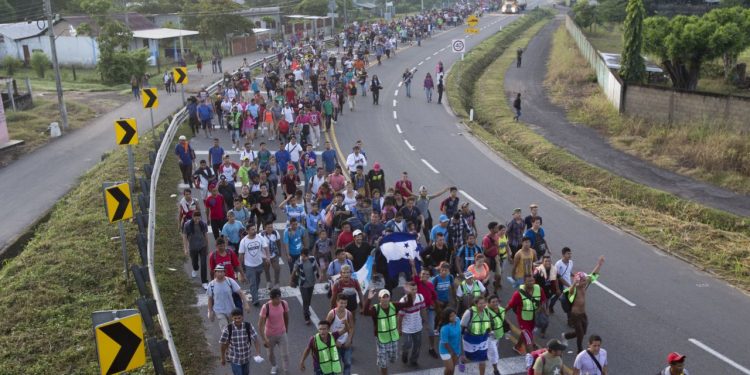(Reuters) – Every day, Nidia Montenegro spends hours checking her cellphone, hoping to receive a long-awaited appointment with U.S. border officials to seek asylum in the United States.
The 52-year-old Venezuelan migrant in Mexico says she fears her appointment will not come before President-elect Donald Trump takes office on Jan. 20, when he has vowed to scrap a slew of programs that have allowed migrants to enter the U.S. legally – including the government app that Montenegro is using to try and get her appointment.
That could leave thousands of migrants like Montenegro in limbo and facing the choice of trying to cross into the U.S. illegally, staying in Mexico, or returning home.
Given those options, Montenegro says she would return home, more fearful of the violence she has encountered while traveling through Mexico than the hardship she left behind in Venezuela.
“I am traumatized. If I don’t get the appointment, I will go back,” she said, disheartened.
“There is always the threat of cartels that kidnap us,” added the woman, who says despite thinking about returning home she does not have the money to do so.
A dozen migrants interviewed in Mexico by Reuters said they would prefer to return to their countries despite the ongoing issues that drove them to migrate, such as poverty, lack of employment, insecurity, and political crises.
That is too small a sample size to draw clear conclusions of how migrants will react after Trump takes office, and much will depend on exactly what policies he implements and how.
But it does highlight the hard choices likely to face many after Jan. 20.
The violence in Mexico weighs heavily on any decision.
Montenegro told Reuters she was kidnapped along with two nephews and dozens of others, including children, on the day she arrived in southern Mexico from Guatemala two months ago. Two days later, the group managed to escape.
Now she lives confined in a shelter in the southern state of Chiapas, fearing criminals in the area will kidnap her again.
Organized crime has established extensive human trafficking networks across Mexico, making the journey north through the country treacherous. Mexico is plagued by violence, with around 30,000 people murdered a year and over 100,000 people officially registered as missing.
Many migrants are extorted, beaten, raped, forced to commit crimes, and even killed. Mexican government attempts to slow the arrival of migrants at the U.S. border, by busing and flying non-Mexican migrants to the country’s south, add to the risk.
Mexico’s presidency and National Migration Institute did not immediately respond to requests for comment.
The International Organization for Migration told Reuters that in the last seven years, it has assisted several thousand migrants — especially Central Americans — return voluntarily from Mexico to their home countries, including victims of violence. However, it declined to provide specific figures.
“I cry every day and ask God to take me back, I don’t want to be here anymore… this is horrible,” said Yuleidi Moreno, a Venezuelan migrant who fears staying in Mexico. Through tears she said she had been the victim of violence, but declined to give any further details.
A Venezuelan official familiar with migration issues said that currently, between 50 and 100 compatriots request what is called “voluntary return” each week from Mexico, either covering costs themselves or with state assistance. “There are serious calamity cases like kidnappings, sexual exploitation, a myriad of issues, and some want to return immediately.”
Despite the risks, others will persist, whether joining caravans, paying a human trafficker, or clinging to the hopes of a U.S. government border appointment.
“I trust I will arrive before Mr. Trump takes office,” said Johana, a young Venezuelan migrant planning to cross from Guatemala to Mexico this week. “If it’s not by appointment, there’s always a way,” she added.
Also Read:
- ‘Care postponed and care denied’: Doctor recalls 30 months after Missouri abortion ban
- 49ers’ Trent Williams and his wife announce the heartbreaking death of their newborn son after losing his twin during pregnancy

